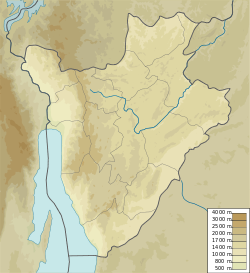Events
In August 2012 Bancobu announced their Mobicash app for mobile phone users to securely pay bills, transfer or withdraw money at any time. The service was provided in collaboration with the mobile operator Onatel Burundi.
In July 2020 Bancobu had run out of checkbooks, after import of the type of paper needed to make the checkbooks stopped due to coronavirus.
In August 2020 Trinitas Girukwishaka replaced Gaspard Sindayigaya as managing director. Trinitas Girukwishaka was the wife of businessman Vénérand Kazohera. In January 2022 it emerged that Kazohera's Intertrade-Kazohera-Tradeco Group, which was supplying equipment to the Ministry of Defense and Ministry of Public Security, had borrowed large amounts from the bank. The Bank of the Republic of Burundi (BRB) told Bancobu that it had violated the legal and regulatory provisions that govern banking practices by granting so much credit to one individual.
As of 2023 the bank had more than 537,000 customers. Its balance sheet was about US$556 million. With headquarters in Bujumbura, it had 400 employees and 49 branches, and gave the widest bank coverage in the country. In April 2023 the African Development Bank approved a trade finance transaction guarantee facility to Bancobu, which would support SMEs in financing exports and imports.
This page is based on this
Wikipedia article Text is available under the
CC BY-SA 4.0 license; additional terms may apply.
Images, videos and audio are available under their respective licenses.

